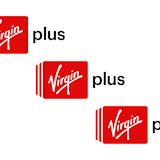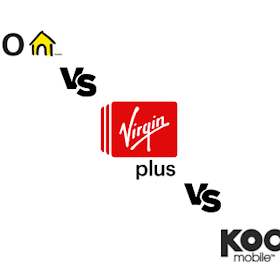5G coverage is now widely available in Canada, though most folks are still unfamiliar with what makes for a worthwhile 5G cell phone plan. 5G is available in Canada through Bell, Rogers, Telus, and Freedom Mobile, as well as regional carriers like Eastlink, SaskTel, and Videotron, and MVNOs like Public Mobile, Virgin Plus, and Koodo.
But what exactly does 5G do? Good question. In this guide, we'll break down how 5G works and explain why that matters for your cell phone plan and, more importantly, for your wallet.
Rogers, Bell, and Telus 5G coverage and availability
Even though wireless providers launched 5G service less within the last five years, it’s now available in every province across the country. Rogers was the first, with service in Toronto and Montreal, but now all three national networks offer 5G connectivity across hundreds of markets.

Credit: Bell
Bell's 5G service reaches over 70% of Canadians, in numerous areas throughout the country. As you can see from the Bell coverage map, though, 5G is still mostly confined to the country's urban centres, though coverage continues to expand in less populated areas of British Columbia, Alberta, and Saskatchewan.

Credit: Telus
Telus' 5G network is less concentrated than Bell's, with especially wide coverage in Alberta and Ontario. Although Telus doesn't offer 5G+ coverage (like Bell and Rogers do in especially crowded metropolitan areas), the carrier does offer 2500 MHz 5G, which they claim allows for faster speeds.

Credit: Rogers
Rogers' 5G network (the red on the above map) is quite similar to its major competitors. After all, all three of the Big Three have 5G networks that reach 70% of Canadians. While Rogers' 5G map differs slightly from Bell and Telus, you can assume that if your home has 5G coverage from one of the Big Three, you'll likely also have coverage with the other two.
5G network coverage
All three national networks remain closely tied for 5G coverage in Canada, with all of the Big Three offering 5G service to 70% of Canadians.
Network coverage in Canada
| Carrier | 5G coverage | 4G LTE coverage | Total network coverage |
|---|---|---|---|
| Telus | 70% | 99% | 37% |
| Bell | 70% | 99% | 36% |
| Rogers | 70% | 97% | 28% |
In addition to the bigger carriers, 5G plans are also available from smaller regional carriers. Freedom Mobile recently launched its own 5G network, providing a more affordable alternative for Alberta, British Columbia, and Ontario. Eastlink, SaskTel, and Videotron, as well as flanker brands Public Mobile, Virgin Plus, and Koodo also offer 5G service.
Where is 5G available in Canada?
| Carrier | Network |
|
|---|---|---|
| Bell Mobility | Bell | Select areas of Alberta, British Columbia, Manitoba, New Brunswick, Newfoundland and Labrador, Nova Scotia, Ontario, Prince Edward Island, Quebec, Saskatchewan |
| Rogers Wireless | Rogers | Select areas of Alberta, British Columbia, Manitoba, New Brunswick, Newfoundland and Labrador, Nova Scotia, Ontario, Prince Edward Island, Quebec, Saskatchewan |
| Telus Mobility | Telus | Select areas of Alberta, British Columbia, Manitoba, New Brunswick, Newfoundland and Labrador, Nova Scotia, Ontario, Prince Edward Island, Quebec, Saskatchewan |
Fastest 5G service
According to a 2023 umlaut report, Rogers offers the fastest 5G downloads as well as the most reliable network. Rogers also now offers 5G+ service in five provinces (British Columbia, Alberta, Manitoba, Ontario, and Quebec), which purports to deliver even faster speeds, especially in crowded areas. Bell also offers 5G+ in select areas; Telus has yet to roll out 5G+.
What makes 5G fast in the first place? Several advancements in telecommunications technology explain why 5G is faster than 4G LTE while using the same cell phone towers. Still, you should know that we’ve only seen the beginning of what 5G will deliver. In addition to more efficient use of existing radio frequencies, fewer customers are using 5G signals. This lack of traffic results in fast and responsive service—if you’re lucky enough to have service. Once Canadian 5G networks begin using high-frequency spectrum, we’ll start seeing even faster connections.
Do you really need 5G?
Cellular networks in other countries install 5G to fill coverage dead zones and improve performance through new tech. However, Canadians already enjoy comprehensive coverage and reliable service via 4G LTE connections—and at some of the fastest download speeds in the world. For instance, your old 4G LTE cell phone and a cheap wireless plan are likely fast enough to stream Netflix movies in full HD.
So while Canadians pay some of the highest rates in the world for cell phone plans, it’s nice to know we’re getting something out of it and may not need an immediate upgrade.
Rogers, Bell, and Telus 5G plans
The Big Three offer premium 5G plans, with generous data allotments that allow you to take full advantage of the high-speed 5G service. Bell's Essential 120GB offers 120GB of full-speed 5G data, along with unlimited talk and text. If you're looking for a new smartphone, the plan allows you to finance the best models on the market, including the iPhone 15 and Google Pixel 8.
Rogers offers a comparable plan with their Infinite Essential, which gives you 120GB of full-speed 5G data, plus unlimited talk and text and just as many high-end smartphones available for financing.
Telus' best 5G option offers a bit more. The Unlimited 100 5G+ Can-US provides a similar amount of full-speed 5G data and unlimited talk and text, though this plan also provides unlimited roaming throughout the US, making it the ideal plan for snowbirds.
More Canadian 5G networks
Rogers, Bell, and Telus were the first to launch 5G networks in Canada, but they weren’t the last. Regional carriers are rolling out 5G tower upgrades, offering real alternatives to the Big Three providers.
Videotron 5G
In the last days of 2020, Videotron became the fourth wireless carrier to announce its new 5G availability. Its service began in Montréal, then slowly expanded to the neighbouring communities, including Laval and Saint-Jean-sur-Richelieu. Service grew to include metro Québec but hasn’t expanded significantly since then.
Quebecor (Videotron’s parent company) recently acquired Freedom Mobile, allowing Videotron to expand operations into Ontario, B.C., and Alberta.
SaskTel 5G
SaskTel offers 5G service throughout Saskatchewan. The government-owned corporation intends to reach 50% of Saskatchewan residents with 5G network availability within a year. One-third of the population lives in rural communities, so 5G telecommunications from SaskTel will be a valuable part of Smart Agriculture for real-time information about crops and livestock.
Eastlink 5G
Eastlink offers 5G coverage throughout Nova Scotia and New Brunswick. The carrier is upgrading cell towers with 5G connectivity to reach Fredericton, Moncton, Charlottetown, Sydney, and Annapolis Valley. Bucking the trend set by other cellular providers, all Eastlink cellphone plans include 5G network access—even the affordable Starter Plans.
Xplore 5G
Xplore is not a cell phone company, but owns 5G spectrum access in Canada. The company is deploying 5G wireless service across the country for fast rural home internet. New technology offers better data transfer speeds, reliability, and range than the older 4G LTE signal. Currently, Telus is the only other internet provider in Canada that uses 5G, but we expect more rural internet providers to employ the technology in the coming years.
Although Xplore has already tried its hand at phone plans with Xplore Mobile, its cellular service will conclude on August 31, 2022, citing regulatory restrictions by the CRTC. Instead, the company will focus on its rural internet service by utilizing spectrum licenses across Canada, acting as a viable competitor to Starlink.
Freedom Mobile 5G
Freedom Mobile recently announced 5G service following its acquisition by Quebecor, the owner of Videotron. Freedom now offers affordable 5G plans in Alberta, British Columbia, and Ontario.
Comparing Canadian 5G networks: FAQs
Related Articles
Find Better Phones and Plans
Hundreds of cell phone plans unpacked. All the facts. No surprises.










































